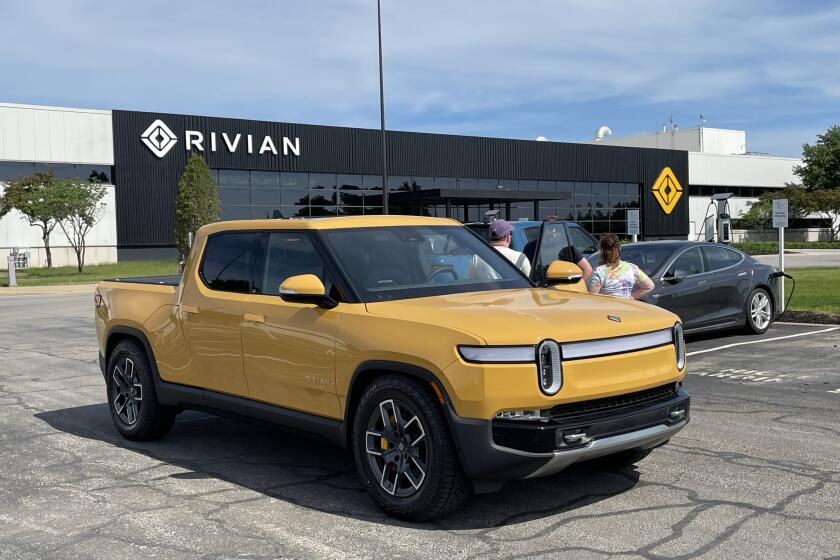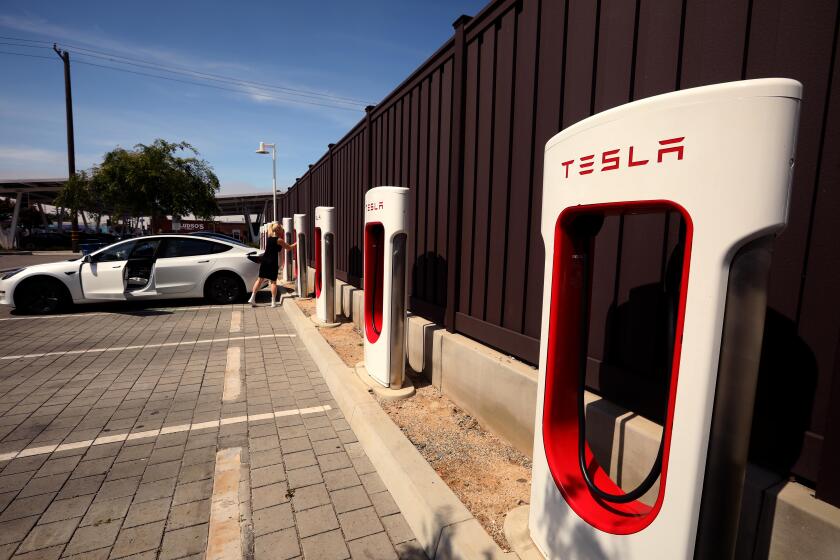Noisy Brakes in New Passat Are Enough to Give One Pause
Question: Are squealing brakes a common problem with new cars? Two years ago, we leased a new 1999 VW Passat GLS. It did not take long for the brakes to start squealing.
The dealer concluded that brake dust was causing the problem and suggested I step hard on the brakes to clear it out. That didn’t work. Next time, I was told to hose off the brakes. I have heard other Passats with squealing brakes. Why is this happening? --M.G.
Answer: Brake squeal is typically caused by glazing of either the brake rotors or brake pads. The slick surfaces create an obnoxious vibration that is difficult to get rid of. At times, warped rotors can also cause noisy brakes, though they cause many other symptoms as well.
The remedies suggested by the dealer were bound to fail. Once the surfaces are glazed, it’s generally not possible to eliminate the problem by washing them or slamming on the brakes.
The use of semi-metallic brake pads, which have particles of metal embedded in the friction material, seems to have made the problem worse in some vehicles. These pads wear longer than pads with no metallic content, but they also can become glazed.
You probably should have asked the dealer to turn the rotors and replace the brake pads. Sometimes it helps to change brands of brake pads, because each manufacturer uses it its own formulation for the friction material and a different material may resist glazing in your car.
*
Q: I own a new Toyota Tundra pickup. The owner’s manual says to use 87-octane gasoline. Is this high enough, or should I use at least 89 octane? --C.S.
A: Follow Toyota’s recommendation. Paying extra for higher octane would almost certainly be a waste of money.
The octane rating of gasoline is a measure of its ability to resist uncontrolled combustion inside the engine. When a spark plug sets off ignition inside the cylinder, the gasoline-air mixture is supposed to detonate in a controlled, even fashion.
If the ignition is uncontrolled, you will typically hear the engine knock or “ping” during acceleration. Although it is annoying, pinging generally will not hurt an engine. Severe knocking, however, can cause internal damage.
Other than controlling knock, higher-octane fuels deliver little benefit. Higher octane will not improve gas mileage or prevent engine wear.
*
Q: Twice I have been unable to restart cars. Both times road service could not jump-start the engine, and I was told the starter was bad. Both times the battery was replaced and everything was fine. One vehicle was a Ford Explorer, the other a Mercedes-Benz C230. Why do batteries go so dead that it’s impossible to jump-start the car? --P.E.
A: If a battery has an internal short, it will put out zero voltage and make it impossible to jump-start the car. An internal short occurs when two of the lead grids inside one of the battery cells touch each other or touch debris that conducts current. That one cell will go dead and not allow voltage from the two good cells of the battery to pass through.
A battery will also go completely dead if the connection between the battery post and the cell adjacent to it breaks.
It’s conceivable that by removing the battery, you could start the car with jumper cables running from your battery cables to another car’s battery. With older mechanical voltage regulators, you could do this and then run the car without a battery to get it to a gas station.
But with newer electronic regulators that are integral with the alternator, this is asking for trouble. In some cases, you can cause serious electrical problems, including damaging the engine control module that costs hundreds of dollars.
*
Ralph Vartabedian cannot answer mail personally but responds in this column to automotive questions of general interest. Write to Your Wheels, Business Section, Los Angeles Times, 202 W. 1st St., Los Angeles, CA 90012. E-mail: ralph.vartabedian@latimes.com.




